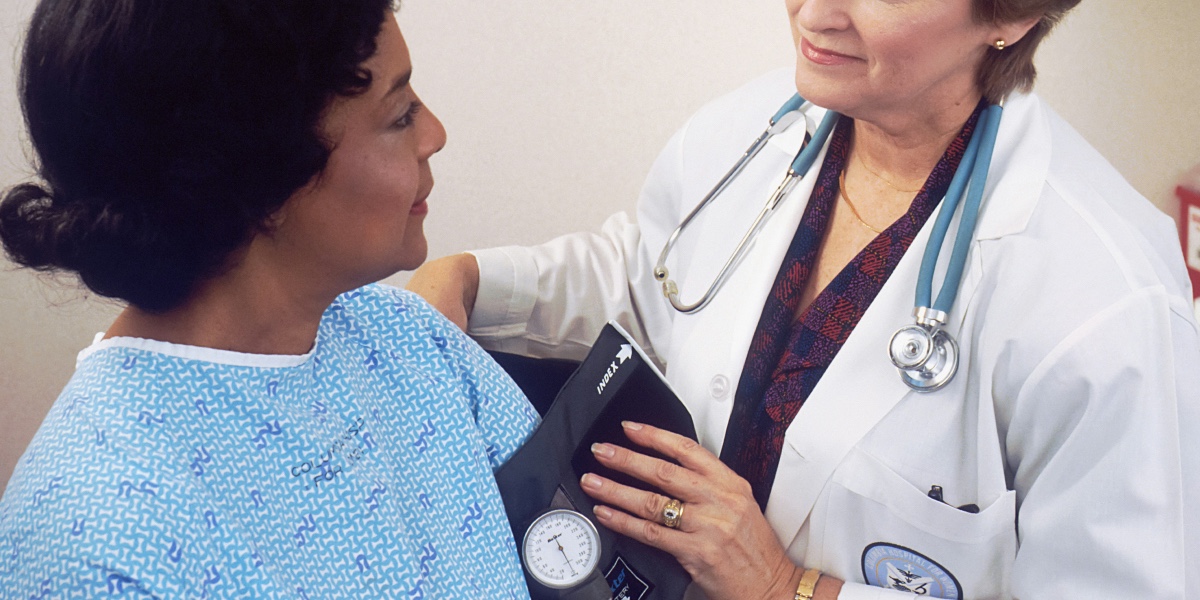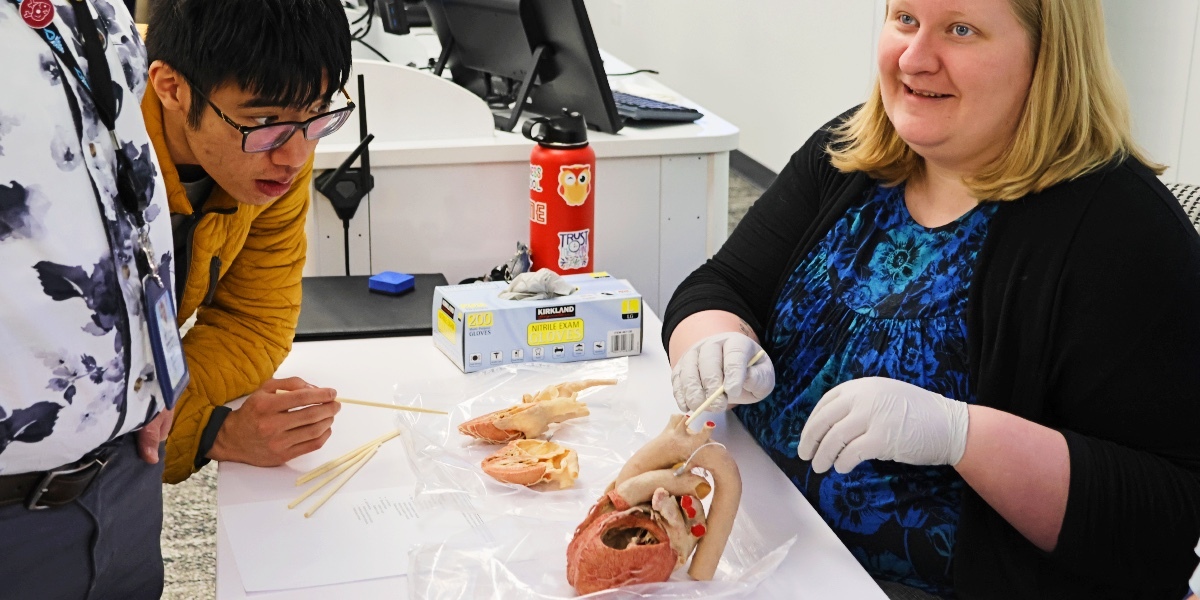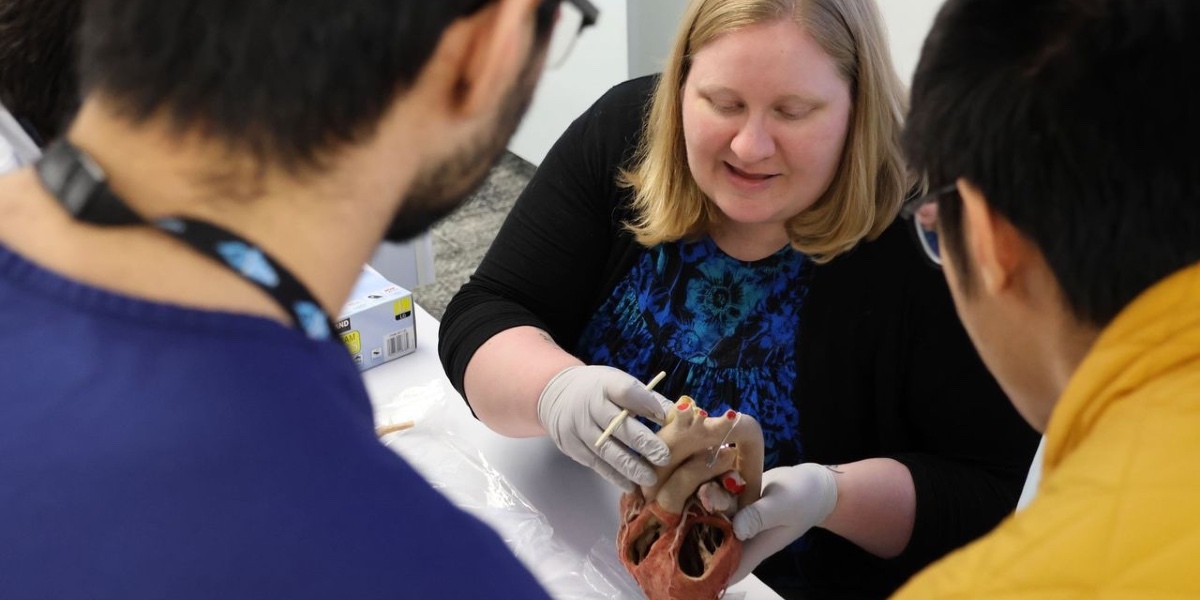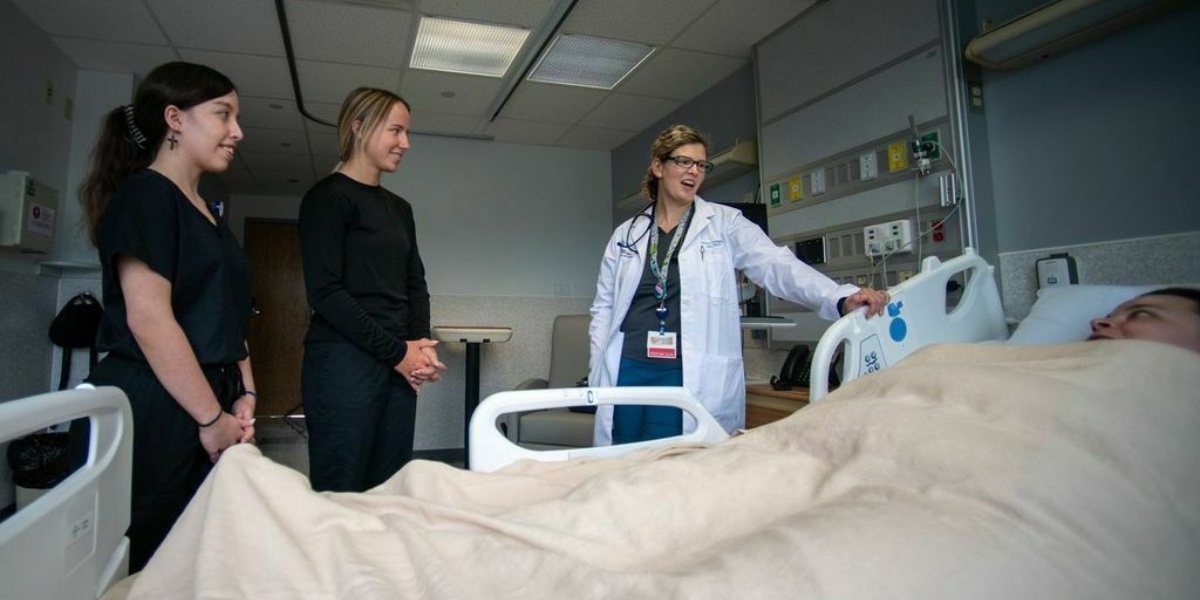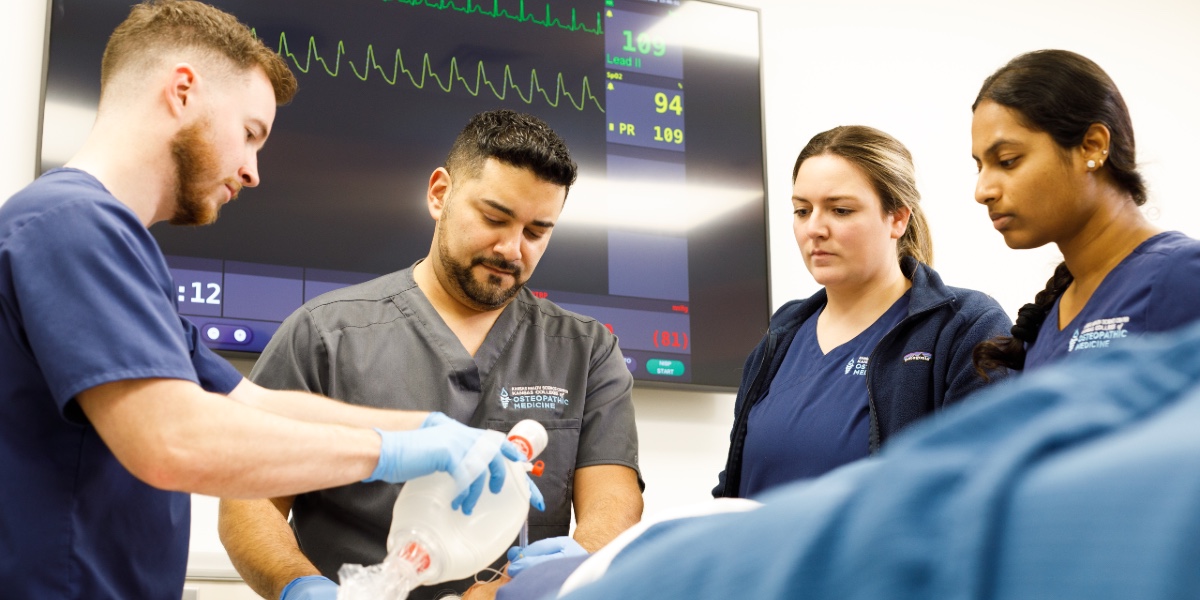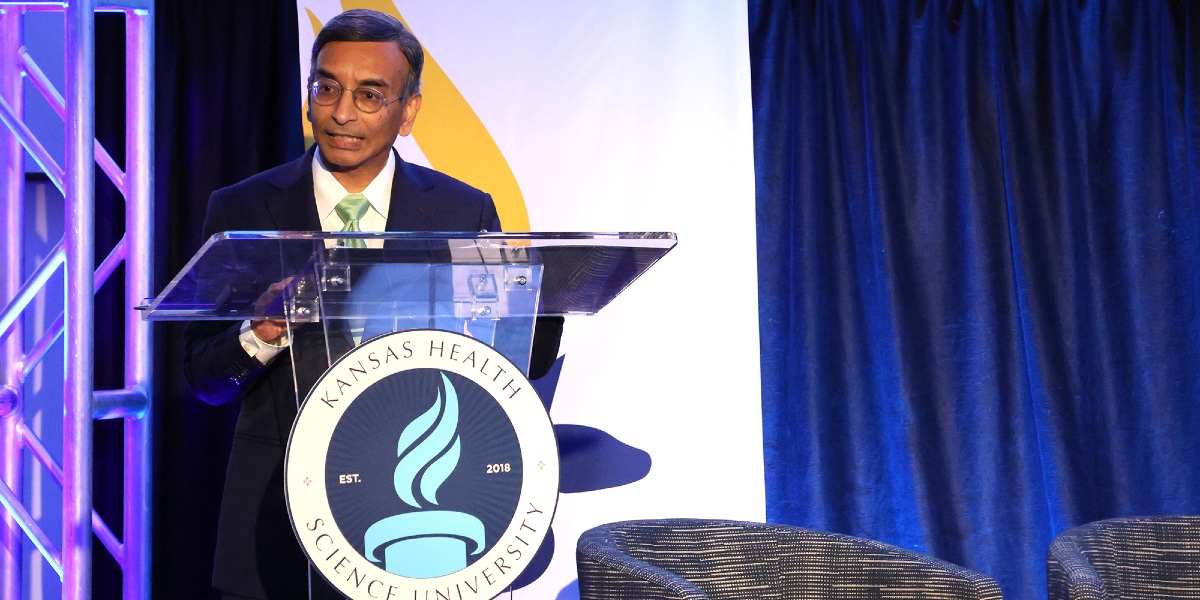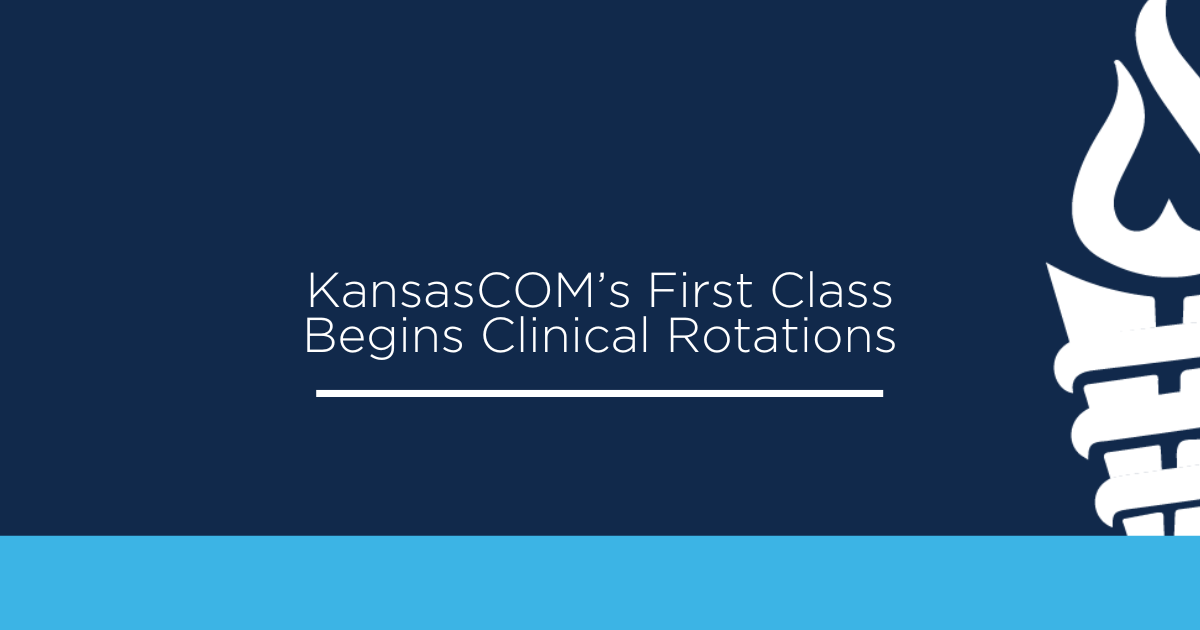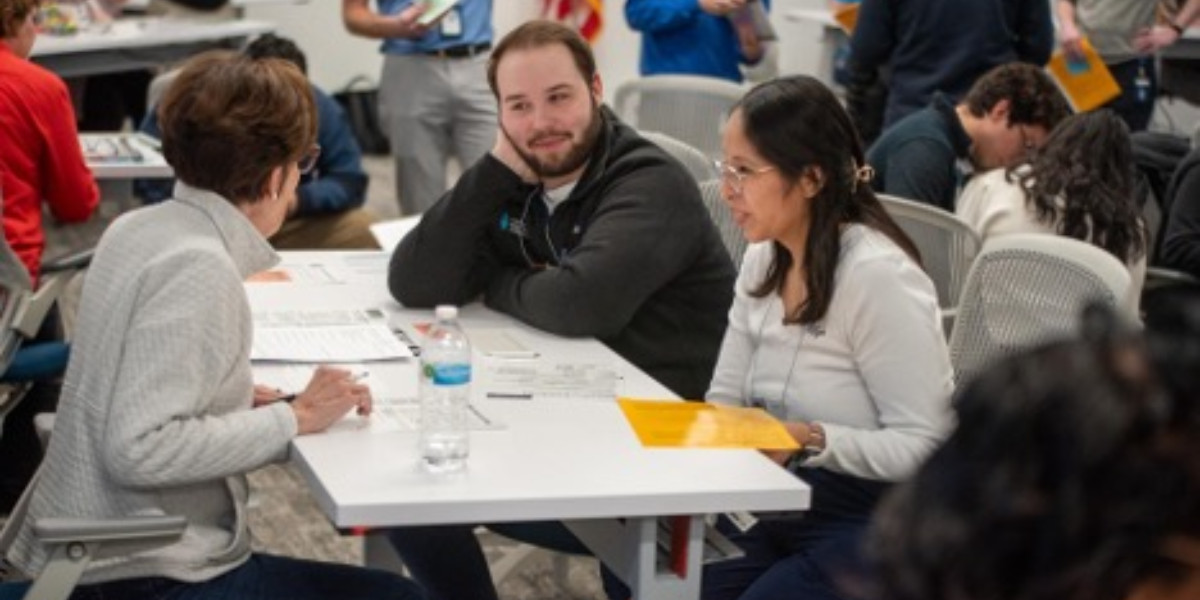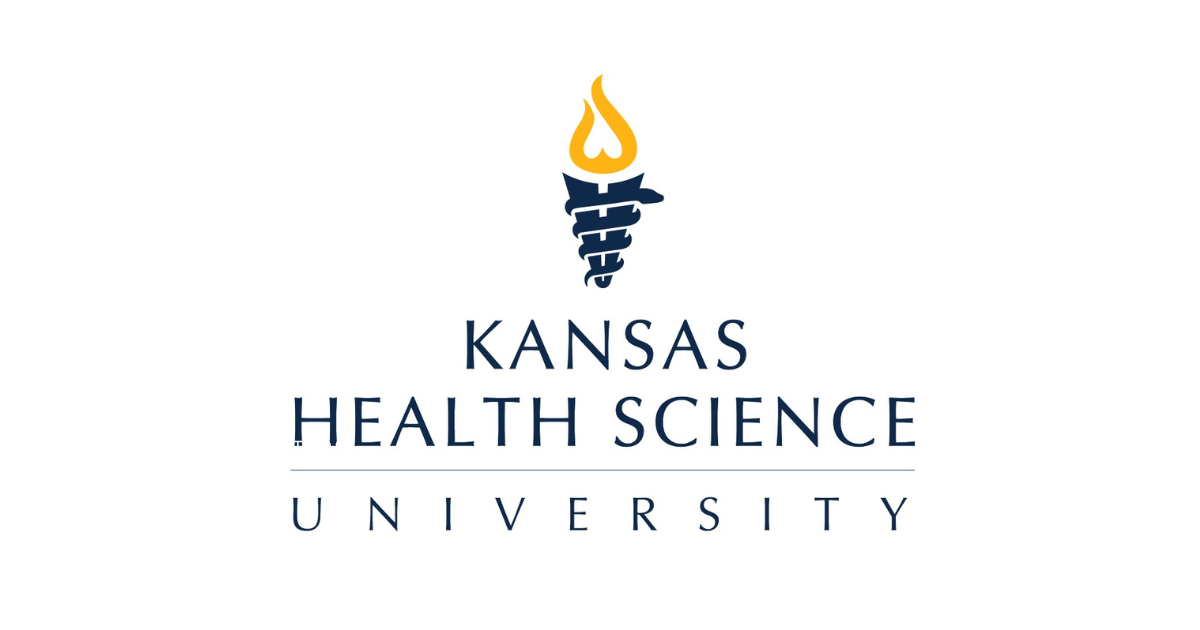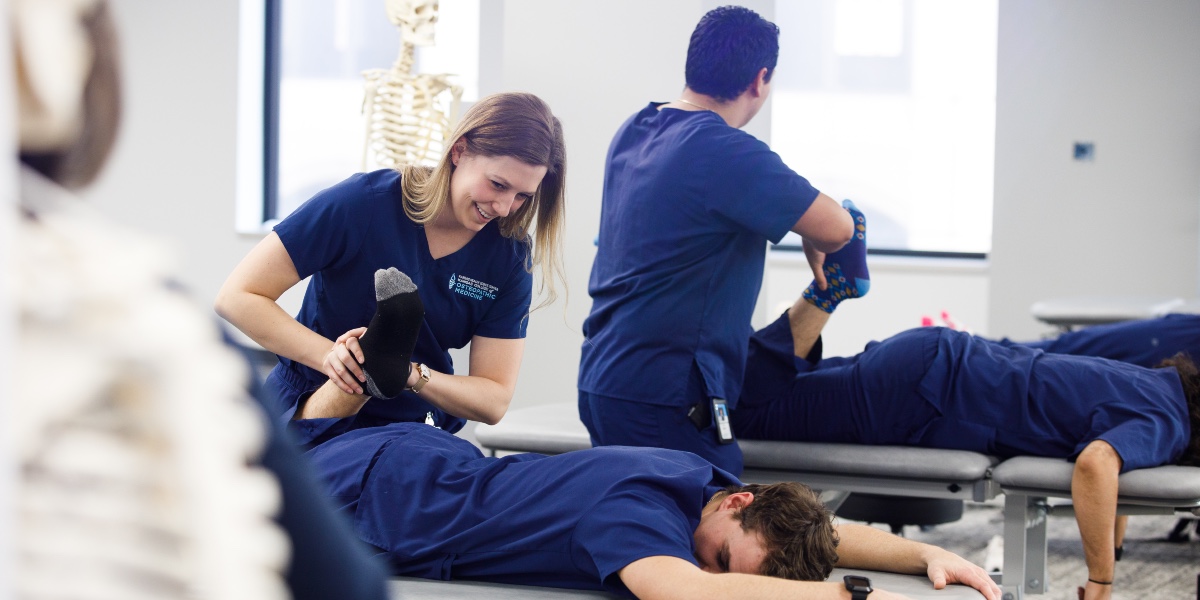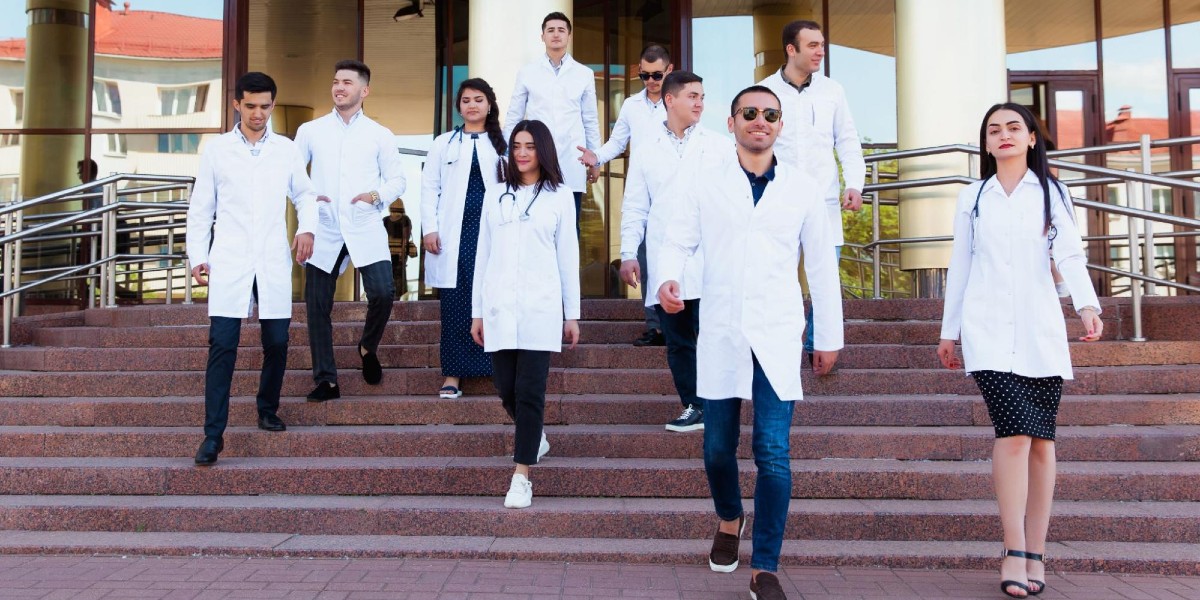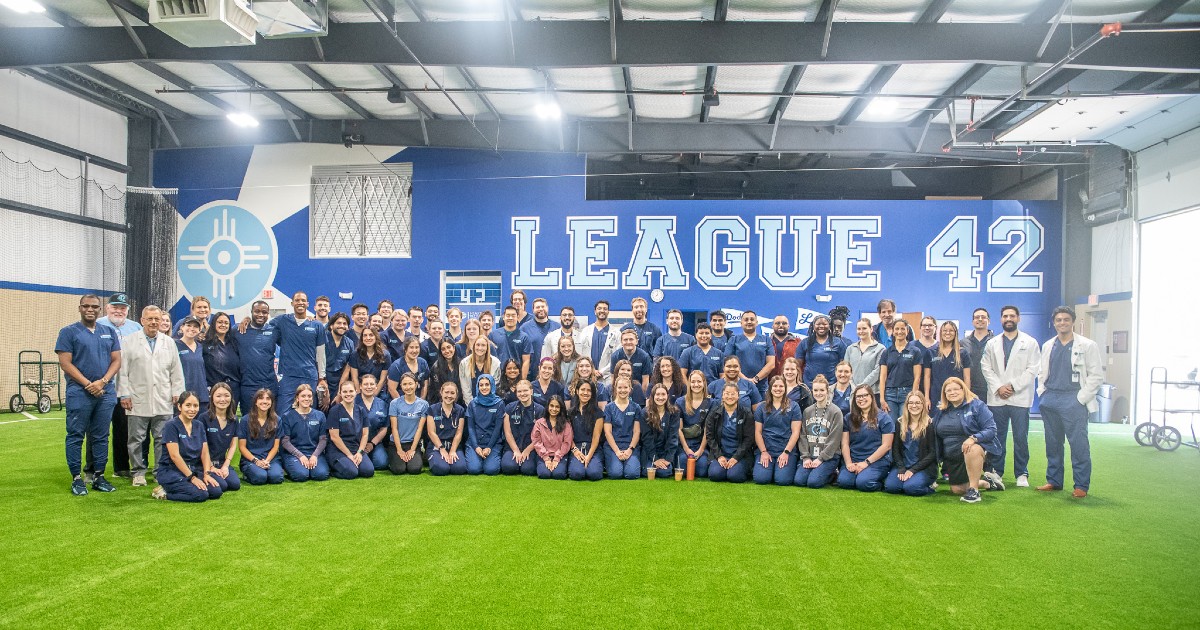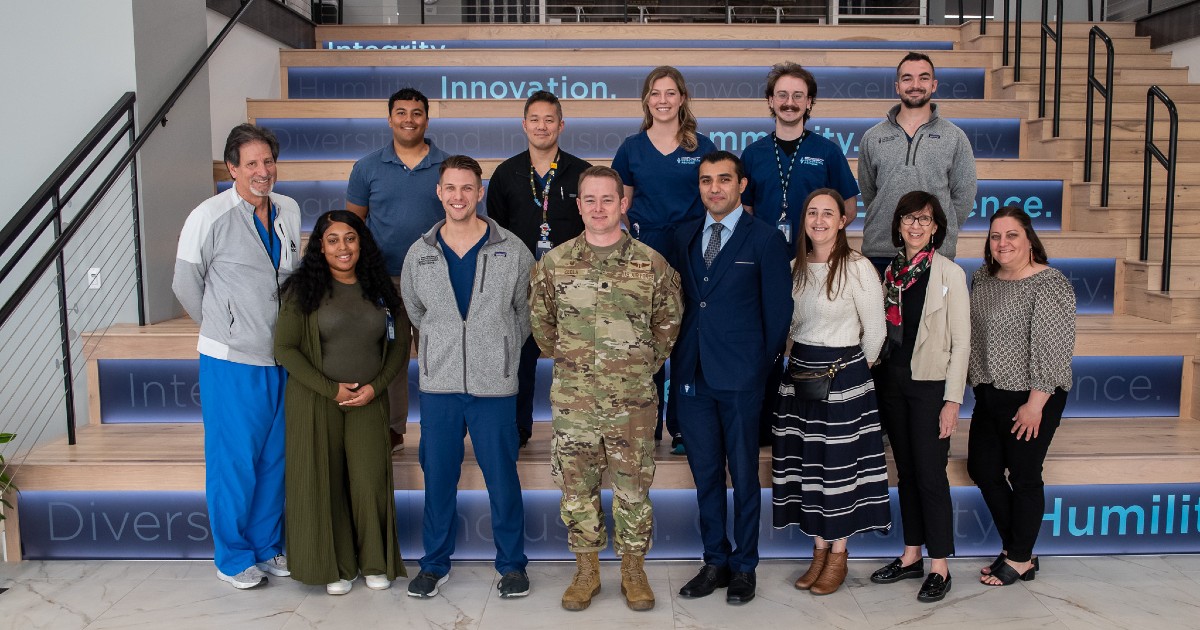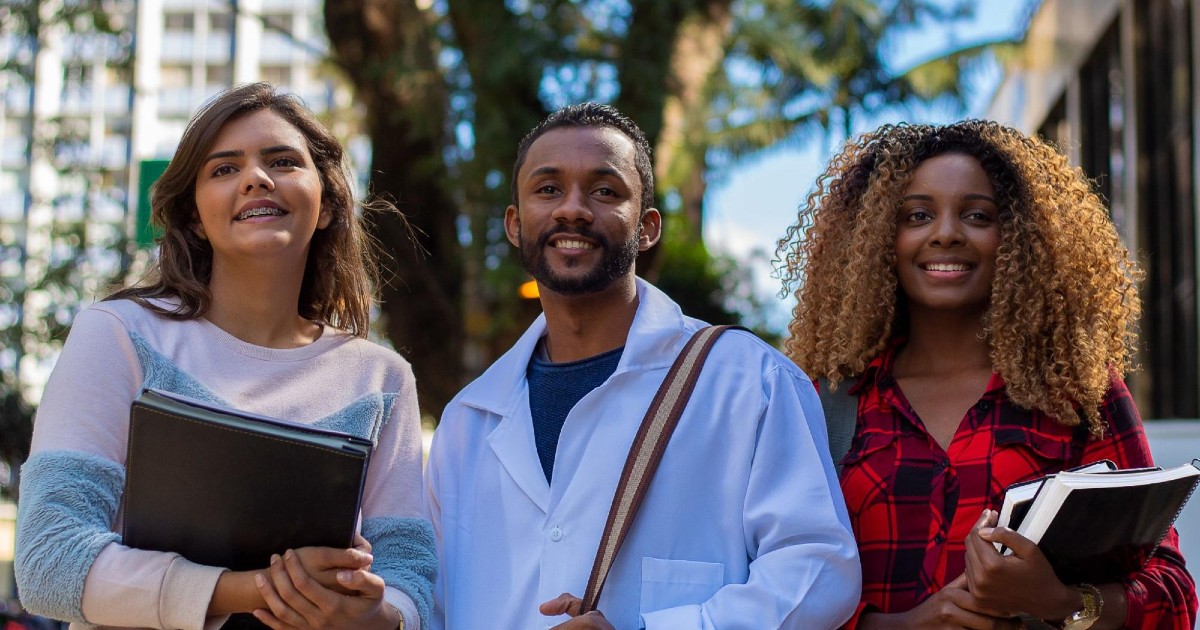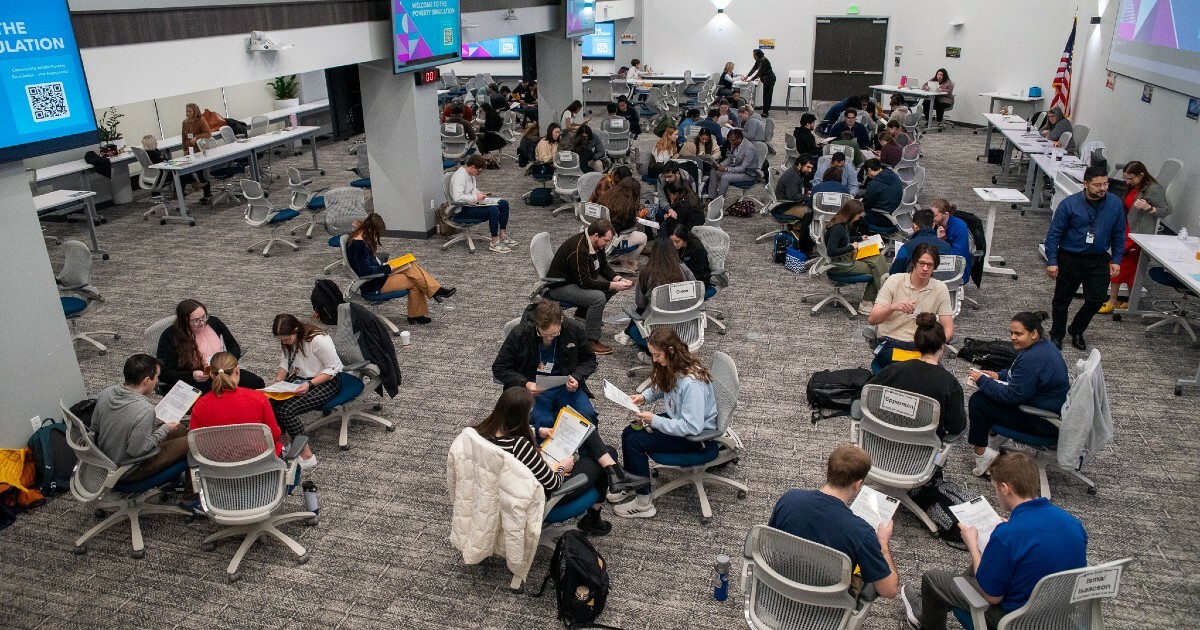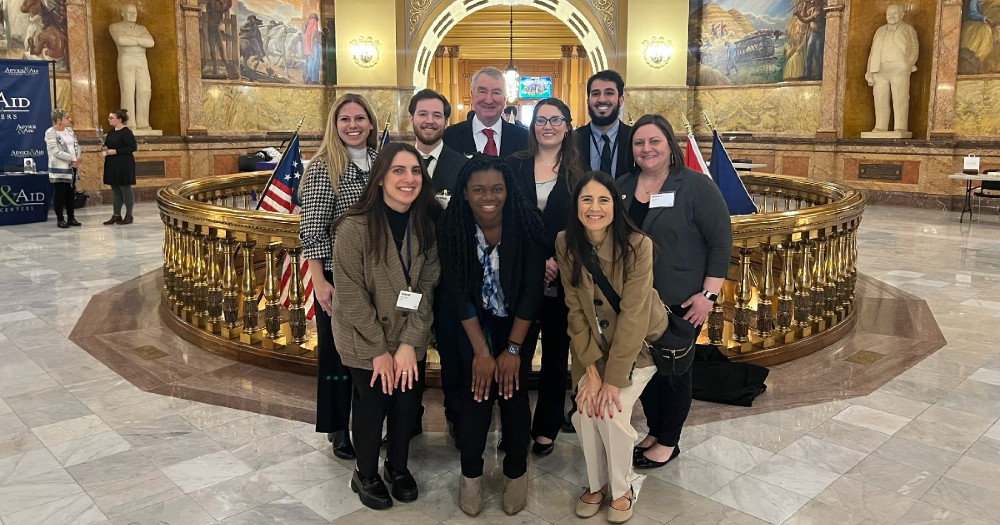How DOs Approach Women’s Health
Kansas College of Osteopathic Medicine uses an innovative osteopathic curriculum to provide graduates with clinical experience, evidence-based research, and collaborative, interactive, and case-based learning. This prepares students for a medical career, practicing a whole-person osteopathic approach. A Doctor of Osteopathic Medicine (DO) can pursue any medical career and specialty with the proper credentials; this includes providing optimal health to Read more >
KHSU Launches Plans for New Biomedical Science Lab
In its first major capital construction project since opening its doors to students in 2022, Kansas Health Science University (KHSU) is working toward the development of a biomedical science laboratory that will enhance institutional research capabilities. The university is currently seeking bids for shell construction of the $2.3 million project, which is planned for the third floor of the Read more >
5 Reasons Why Plastinated Specimens Are an Excellent Alternative to Dissection
Plastinates are a game changer in KansasCOM’s anatomy lab. By Ian Morris SUMMARY: KansasCOM’s multimodal approach to anatomy education includes using plastinated specimens. Plastinated specimens offer many benefits that make them easier than dissection to use, including that they don’t require special storage, they are easy to handle, and they last for many years. The students at KansasCOM Read more >
KHSU Plastination Library Brings Anatomy to Life With Silent Teachers
With the new plastination collection at KHSU, medical students can encounter isolated organs and regions of the body. Mastery of human anatomy is the cornerstone of reliable clinical diagnosis. With the arrival of plastinated human specimens to its anatomy lab, the Kansas College of Osteopathic Medicine (KansasCOM) is giving its students an edge: an opportunity to see anatomy as Read more >
Kansas Scholarship Reduces Medical Debt and Grows Rural Physician Workforce
For Alana Longwell, DO, moving to Emporia, Kansas, to begin her practice back in 2011 was more than a career move; it was the fulfillment of a promise she made when she accepted the Kansas Osteopathic Medical Service Scholarship. By accepting this service scholarship created through support of the Kansas Legislature and administered by the Kansas Board of Regents, Read more >
KansasCOM Clinical Rotations Strengthen Pipeline for Kansas Doctors
Third-year medical students at Kansas College of Osteopathic Medicine (KansasCOM) hone their adaptability skills as their learning takes them on nine different clinical rotations over the course of the year, offering them opportunities to apply years of classroom study in real hospitals and clinics alongside experienced physicians in core areas of medicine. KansasCOM partners with more than 350 preceptors, Read more >
KansasCOM Students Shadow at US Figure Skating Championships
Author’s note: This story was produced prior to the tragic news that a flight from Wichita to Washington, D.C., carrying a number of skaters and attendants from the U.S. Figure Skating Championships, crashed on January 29. We stand with the U.S. Figure Skating community, with the families of all the victims, and with all those in Wichita grappling with the heartbreaking Read more >
Key Challenges to Health Care Access in Rural Kansas
Rural access to health care presents a complex web of challenges. We explore these challenges, and the disparities they create, in detail and discuss initiatives designed to address them. Your cell phone vibrates in your pocket. Ride is here. Grabbing a jacket, you check the clock and note that it is just an hour until your doctor’s appointment. Cutting Read more >
Is Osteopathic Medicine a Growing Field?
The field of osteopathic medicine has expanded as the demand for health care professionals with a patient-focused approach continues to grow. In the last decade, the number of DOs in the U.S. has increased by 70%. In 2018, there was a record number of osteopathic physicians who graduated from osteopathic medical schools, and the field has continued to grow. Read more >
Which Path Is Right for You: DO or MD?
There are distinct differences in the number of accredited programs and admission criteria. Discover the pros and cons of applying to MD or DO programs. When considering medical school options, prospective students often compare the requirements of applying to MD (Doctor of Medicine) and DO (Doctor of Osteopathic Medicine) programs. While both paths offer rigorous training and lead to Read more >
AI in Medicine Informs Patient Care While Saving Doctors Time
At the inaugural Frontiers in Medical AI Summit in October, thought leaders spoke of artificial intelligence and the future of health care. Artificial intelligence (AI) is transforming health care quickly, and modern doctors must be aware of how to leverage it to deliver the best possible patient care. By incorporating AI in disease detection, optimizing organizational efficiency, and even Read more >
Can DOs Practice Medicine Internationally?
Kansas College of Osteopathic Medicine offers a comprehensive doctor of osteopathic medicine program for both United States and prospective international doctors. Kansas College of Osteopathic Medicine (KansasCOM) offers a comprehensive Doctor of Osteopathic Medicine program for both United States and prospective international doctors. Doctors can travel and see the world while practicing medicine. Osteopathic doctors have full practice rights Read more >
KansasCOM’s First Class Begins Clinical Rotations
KansasCOM’s third-year students have fanned out across the state for their first experiences in clinical settings, and they are earning rave reviews. After two years and hundreds of hours devoted to preparing for their medical careers in lectures, simulation labs, anatomy lessons, community service, and air ambulance ride-alongs, the first class at Kansas College of Osteopathic Medicine (KansasCOM) has Read more >
How Osteopathic Medicine Meets Community Needs
Osteopathic medicine is a health care practice that not only addresses your physical ailments but also emphasizes preventive care, patient education, and community wellness. Doctors of osteopathic medicine (DOs) are at the forefront of a movement to foster stronger, healthier communities through comprehensive and individualized care. Discover how the community-focused approach of osteopathic medicine is transforming lives and building Read more >
Dr. Joaquin Santos Hits an Education Home Run at the College World Series
Baseball is about hot dogs, peanuts, and Cracker Jack. It’s about swings and strikes. It’s about pitching, hitting, and catching as well as family, friendship, and fandom. It’s about winning on the best days and losing on the worst. Unfortunately, sometimes it’s also about strains, sprains, concussions, and contusions. On those occasions, the most valuable players aren’t the athletes Read more >
Kansas Health Science Center is now Kansas Health Science University
After five years as a Wichita-based nonprofit university committed to developing strong, innovative education programs in emerging areas of health care, Kansas Health Science Center (KHSC) is changing its name to Kansas Health Science University (KHSU) effective today. “This name change reflects our growth and ongoing commitment to providing exceptional programs that produce forward-thinking, empathetic health care leaders,” said Read more >
Muscle Energy Technique: Highlighting Osteopathic Practices
Kansas College of Osteopathic Medicine offers a student-focused, patient-centered osteopathic program. In this program, students learn osteopathic manipulative treatment (OMT), which involves the muscle energy technique. OMT is manual manipulation used to treat somatic dysfunction, improve motion and neuromuscular function, decrease pain, and improve biochemical balance. KansasCOM teaches OMT techniques to help treat health issues, aiding or replacing prescription drugs Read more >
What Is Patient-Centered Care, and Why Is It Important?
A transformative shift is redefining the way we approach health and wellness in modern health care. At the heart of this change is patient-centered care, a philosophy that puts the patient at the center of medical care instead of only their symptoms or disease. This patient-centered approach is a methodology of crucial importance to the future of osteopathic medicine, Read more >
KansasCOM and League 42 team up to hit a home run for community health at annual DO Day of Service
The Kansas College of Osteopathic Medicine (KansasCOM), in partnership with League 42, hosted a health fair as part of the National DO Day of Service. This special day was not only a chance to support the Wichita community but also an educational opportunity for the 90 student doctors who volunteered. The event took place at League 42’s Leslie Rudd Learning Read more >
Committed to Service: Military Scholarship Programs at KHSU-KansasCOM
The Kansas Health Science University-Kansas College of Osteopathic Medicine (KHSU-KansasCOM) proudly announces that 24 of its students, approximately 10% of the student population, are enrolled in military scholarship programs, a testament to their commitment to both their medical education and their nation. KHSU-KansasCOM facilitates numerous students through the Health Professions Scholarship Program (HPSP), offering full tuition, a monthly stipend, Read more >
Understanding the Core Tenets of Osteopathic Medicine: A Foundation for Future Practitioners
Doctors of Osteopathy (DOs) receive additional training in the musculoskeletal system, focusing on the interconnectivity of the nerves, muscles, and bones. Osteopathic doctors are fully licensed physicians who can practice medicine, prescribe medicine, and perform surgery, depending on their area of practice. At Kansas College of Osteopathic Medicine (KansasCOM), we train our osteopathic students to become competent and compassionate Read more >
Real-World Impact: Examples of Osteopathic Medicine in Patient Care
Osteopathic medicine stands out in the health care field with its unique, integrative approach to patient care. Osteopathic medicine isn't just about treating symptoms; it's about looking at the body as a whole and understanding the interconnectedness of all its parts. What Is Osteopathic Medicine? Osteopathic medicine is a distinct form of medical practice. It provides all of the Read more >
Tech and Touch: Teaching Innovation at KansasCOM
Innovative care is one of the pillars of the KansasCOM mission. This is what it looks like in the classroom. Human interaction is at the heart of osteopathic medicine. Through touch and patient dialogue, doctors of osteopathic medicine diagnose patients and foster communication. Now, though, KansasCOM is employing a range of state-of-the-art technological innovations to maximize medical classroom and Read more >
KHSC-KansasCOM hosts poverty simulation to empower future health care leaders
At the Kansas Health Science Center-Kansas College of Osteopathic Medicine, 136 first-year osteopathic medical students recently took part in a Community Action Poverty Simulation (CAPS). The event, aligned with KHSC's mission, aimed to deepen students' understanding of community health challenges and inspire them to support underserved populations. During the poverty simulation, students roleplayed as members of diverse families facing financial Read more >
Kansas College of Osteopathic Medicine students participate in Physician Advocacy Day
Student doctors from the Kansas Health Science Center – Kansas College of Osteopathic Medicine recently attended Physician Advocacy Day at the Kansas Statehouse in Topeka. Led by Angela Carrick, DO; John McMaster, MD; and Molly Fox, the event allowed students to engage with elected officials, physician specialty groups, and practicing physicians. Discussions centered around health care policy under review Read more >

